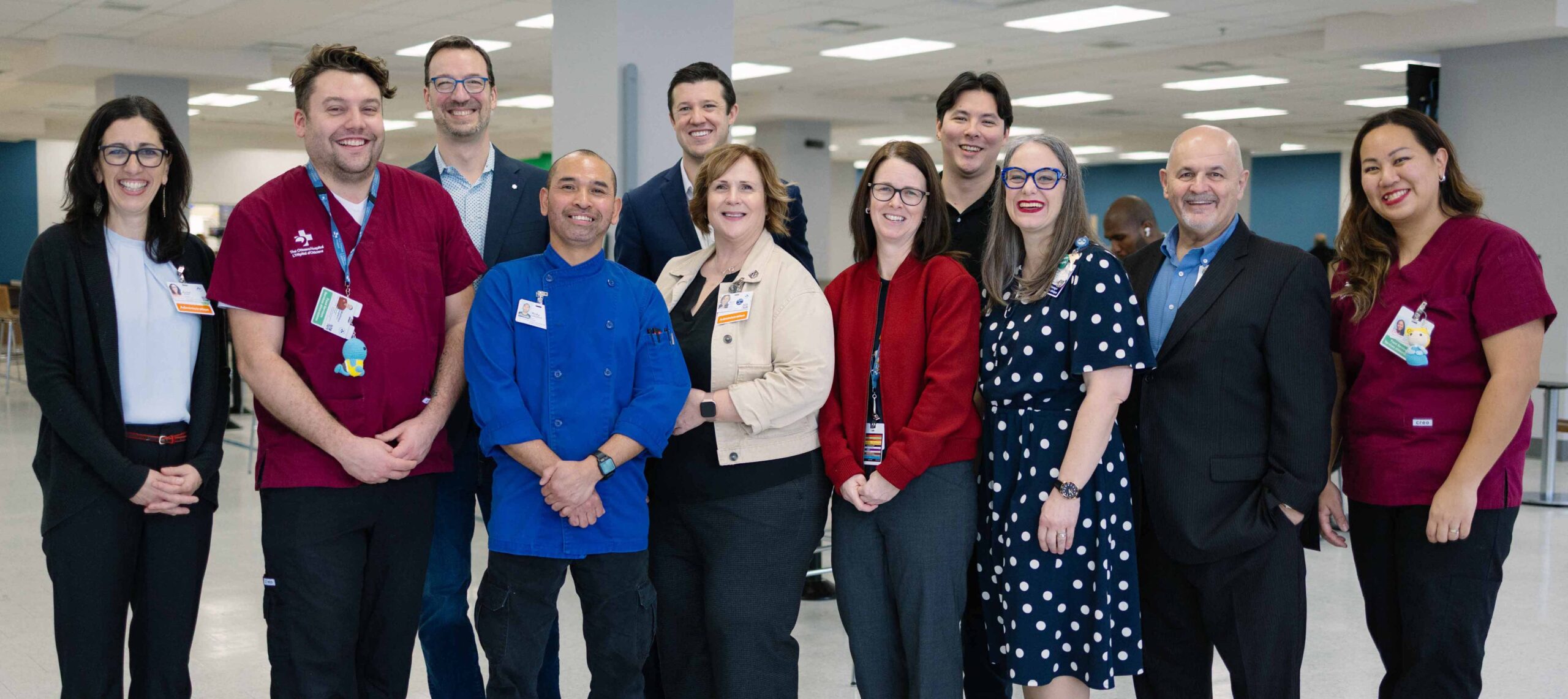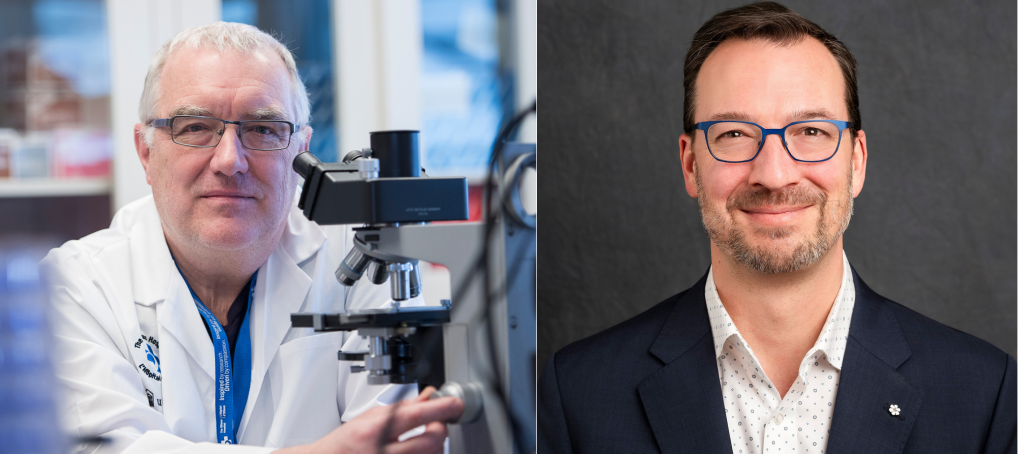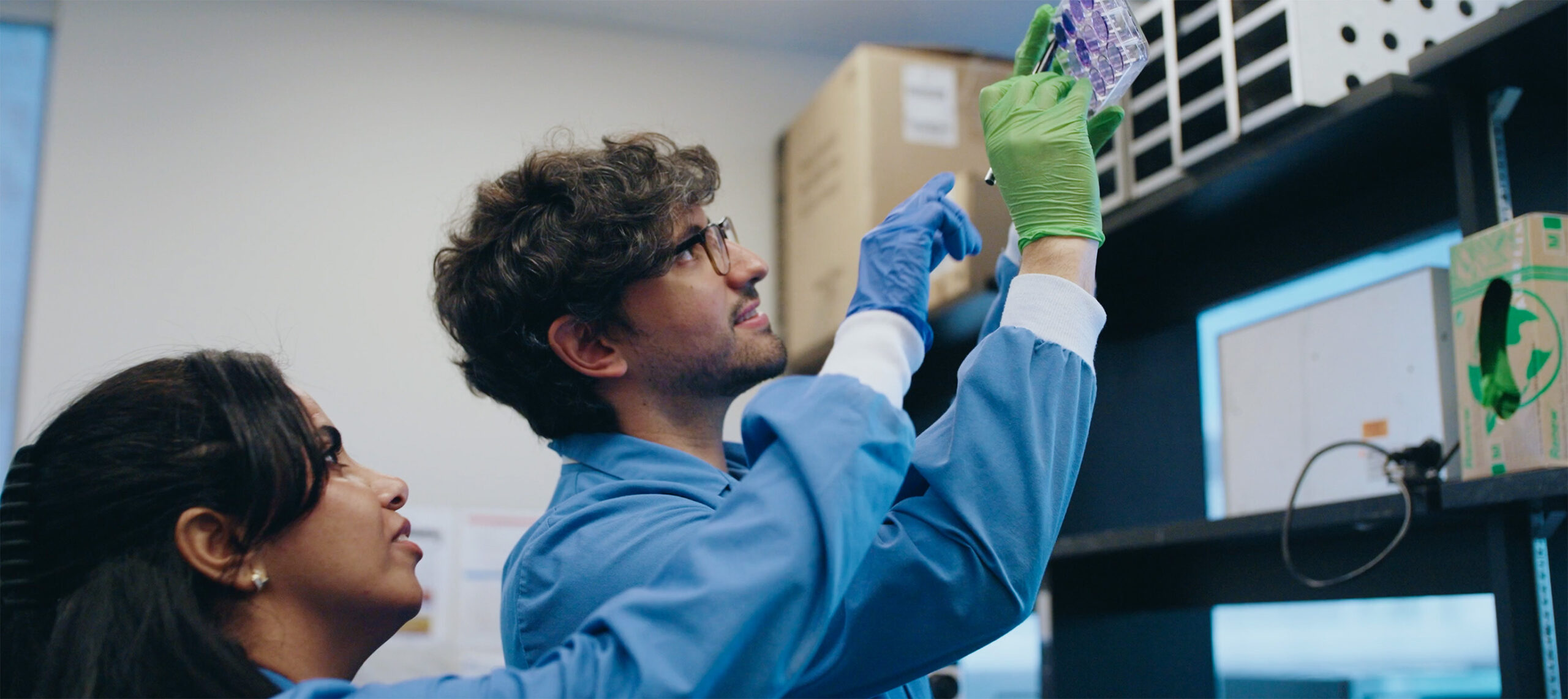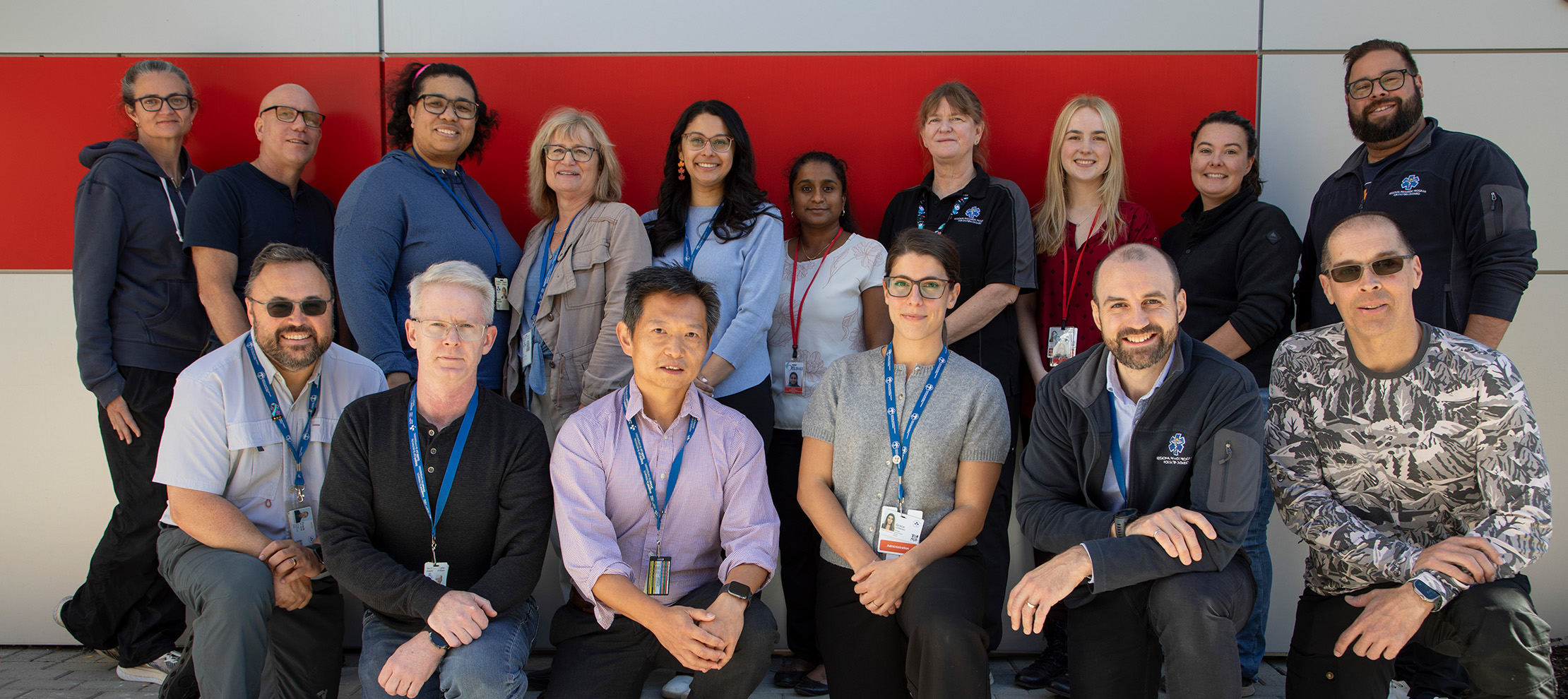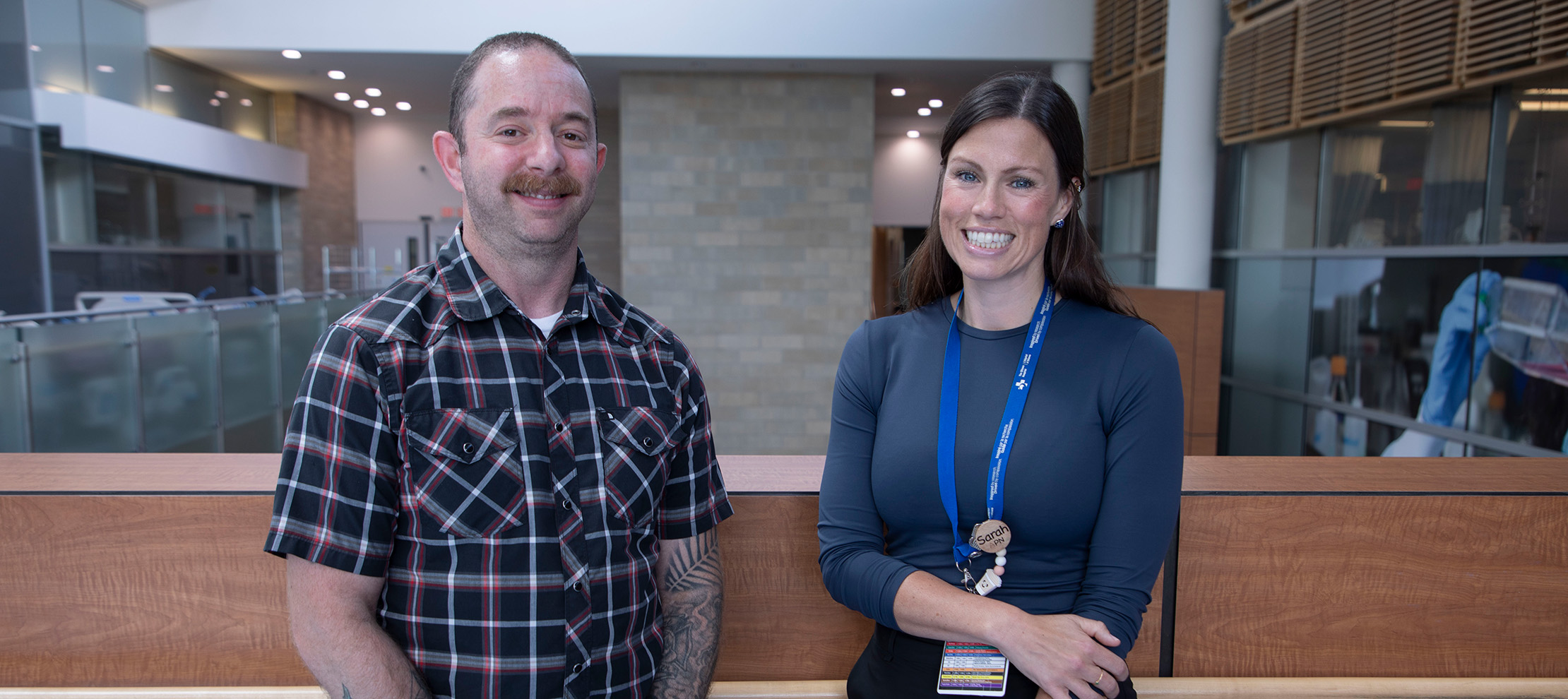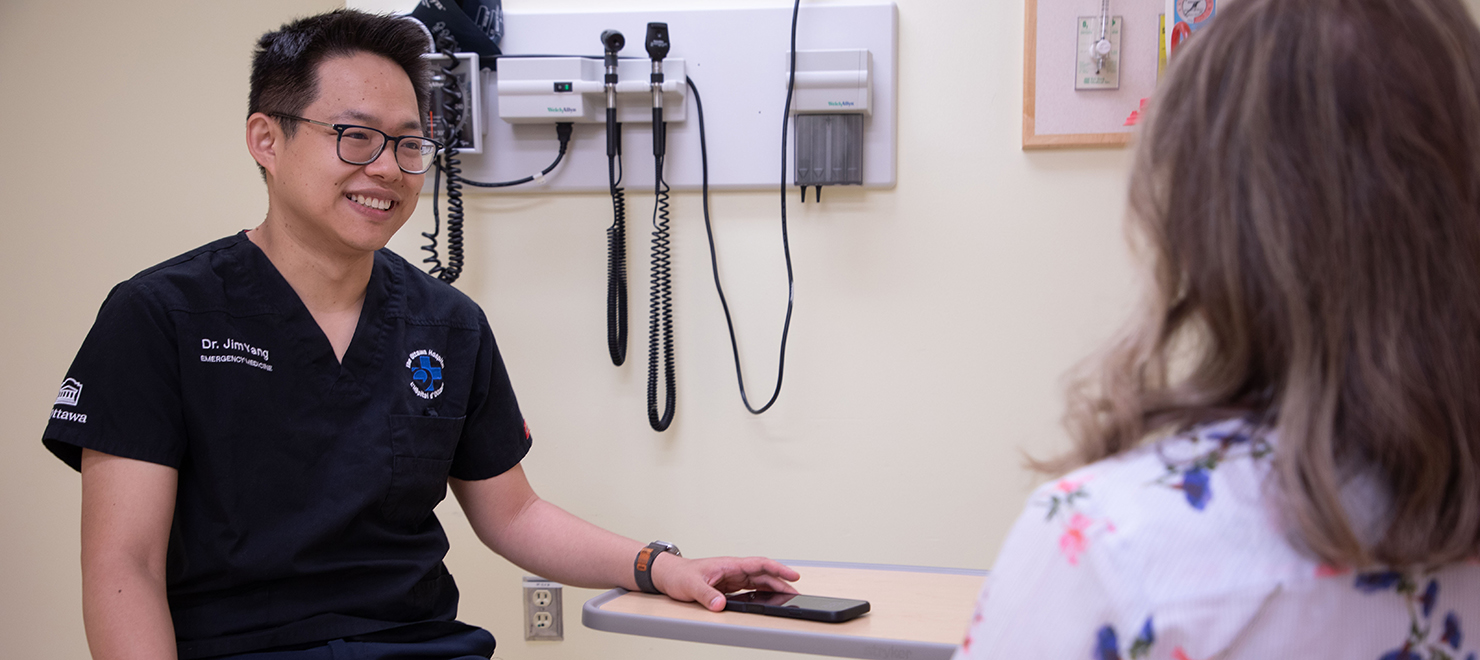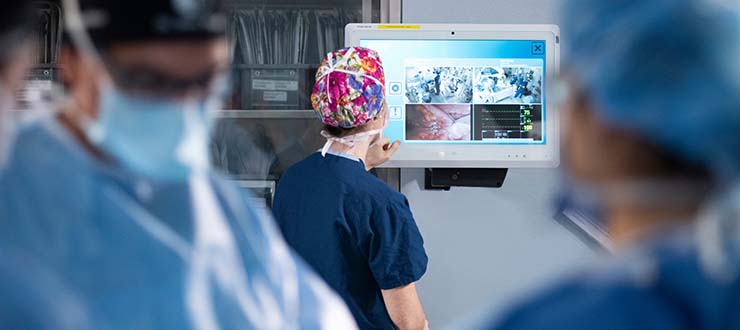
Staff working in OR3 at the General Campus, where the OR Black Box was installed, are helping researchers study the effects of ‘soft skills’ such as leadership, communications and teamwork.
Technical skills are clearly part of a successful surgery, but what about ‘soft skills’ like leadership, communications and teamwork?
Dr. Sylvain Boet and his research team at The Ottawa Hospital are studying whether improving these soft skills among operating room staff can make surgery safer for patients.
“It’s exciting to be part of something that could be such a breakthrough in health care.”
Dr. Boet and his team have already studied the best ways to teach soft skills during simulated scenarios. However, they did not have a way to measure whether these lessons were being applied in real-world operating rooms, until now.
The research team partnered with Dr. Teodor Grantcharov and his team at St. Michael’s Hospital in Toronto to install an Operating Room Black Box® in OR3 at The Ottawa Hospital’s General Campus last summer. The platform captures audio, video, patient vital signs and other information from the OR during surgery.
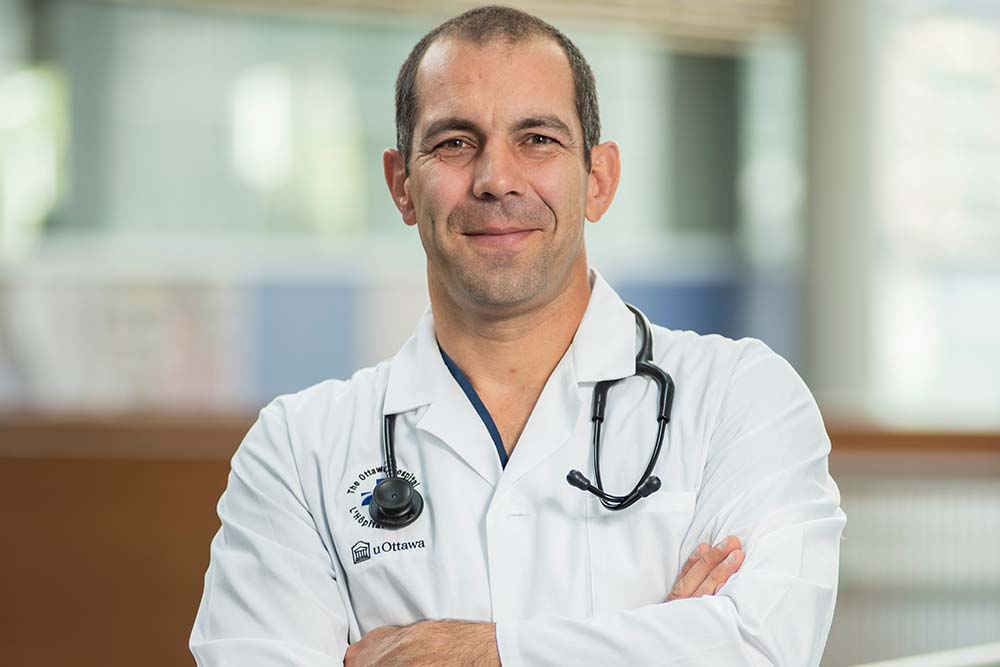
“When I was a medical student, we had lots of training in technical skills, like how to close an incision or insert a breathing tube. But there was less focus on soft skills like leadership, teamwork and communication,” said Dr. Boet, a scientist and anesthesiologist at The Ottawa Hospital, and associate professor at the University of Ottawa. “Today, medical staff receive more training in these areas, but we don’t know whether it’s making a difference in patient outcomes.”
Studies suggest that many surgical complications can be linked to problems with soft skills.
Information captured by the OR Black Box will help researchers identify trends in teamwork and communication, which they will then link to how well patients did after surgery. The information will be used for research purposes only. Faces and voices will be altered to protect privacy.
“By studying teamwork and communication, we can develop best practices that improve patient care, not only in Ottawa but around the world.”
Understanding that surgery is already a stressful experience for patients, Dr. Boet’s team worked with patient advisors Maxime Lê and Laurie Proulx to find the best way to explain to people why their surgery might be recorded and how it might help improve care for future patients. Patients are told about the black box before their surgery and can choose to opt out at any time.
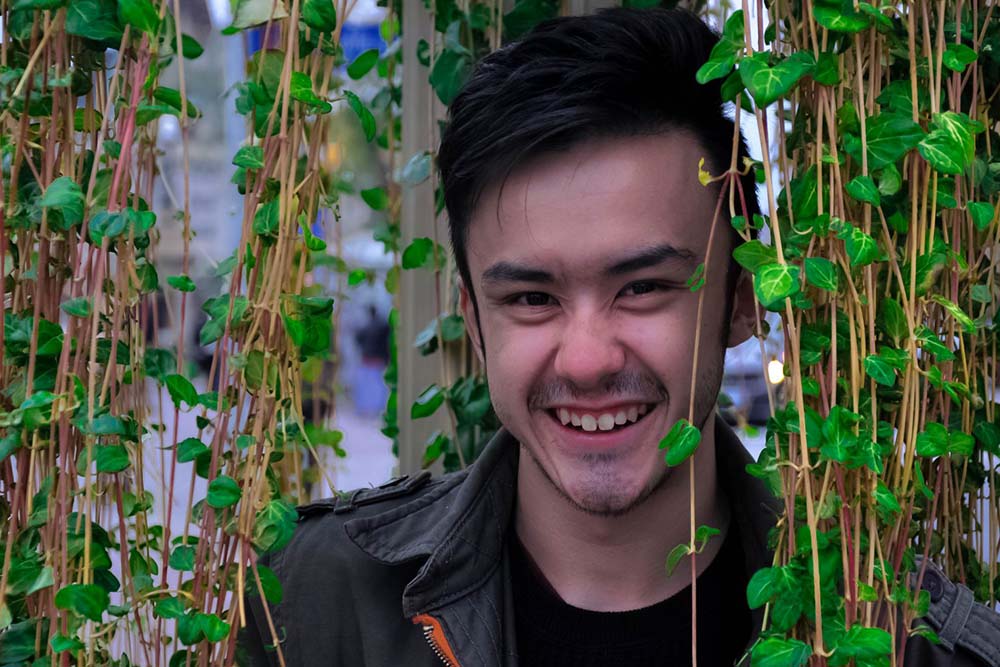
“Personally, I wouldn’t have any problem with my surgery being recorded, because I know there are many safeguards in place to protect my personal information,” said Lê. “The more I get involved in this project, the more I am confident that it’s a good idea. It’s exciting to be part of something that could be such a breakthrough in health care.”
The Ottawa Hospital is the fourth hospital in Canada to install the black box, and the first one outside the Toronto area.
“By studying teamwork and communication, we can develop best practices that improve patient care, not only in Ottawa but around the world,” said Dr. Boet.
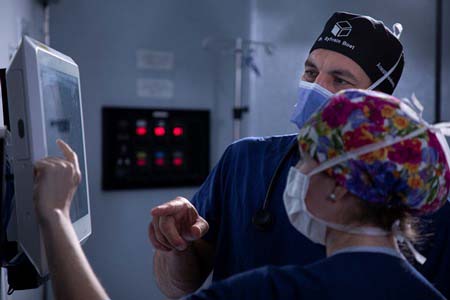
The researchers received support from The Ottawa Hospital Academic Medical Organization, the Canadian Institutes of Health Research, the Department of Anesthesiology and Pain Medicine, the Department of Surgery and the Department of Obstetrics and Gynecology.

Support patient care and research at
The Ottawa Hospital
You might also like…
Reimagining hospital food: How The Ottawa Hospital is transforming the patient mealtime experience
In 2024, we launched the trial phase of our Patient Food Transformation Project. The goal was to see if it is possible to improve the overall nutrition and quality of food we serve to our patients, while increasing bedside hospitality, enhancing the overall sustainability of our food services, and not increasing operational costs. Our trial wrapped in 2025 with very promising results.
Dr. John Bell and Stephen Beckta inducted into the Order of Canada
The Ottawa Hospital is proud to share that on December 31, 2025, two members of our team were inducted into the Order of Canada. Congratulations Dr. John Bell and Stephen Beckta.
Everyone at our hospital plays a role in research. Here’s how
It’s Research Week at The Ottawa Hospital. Check out this video to hear from some of the incredible people fuelling our discoveries that are having an impact around the world.
How we’re helping over 1,400 paramedics enhance patient care and safety
The Regional Paramedic Program for Eastern Ontario (RPPEO) is on a mission to enhance what happens after you dial 911. Here are three new ways this team is helping paramedics deliver better, safer care to their patients.
New program fills gap in care for teens and young adults with cancer
For young people, a cancer diagnosis can disrupt their education, careers, relationships and family-building goals. Our Adolescent and Young Adult (AYA) Cancer Program supports AYAs on their cancer journey, complementing the care provided by their care team.
Less time charting means more time with patients: How The Ottawa Hospital is using AI to support patient care
“I’m seeing and treating more patients.” Find out how DAX Copilot, a powerful AI assistant, is helping our physicians cut down on paperwork, improve their own well-being and spend more time with patients.


 To reset, hold the Ctrl key, then press 0.
To reset, hold the Ctrl key, then press 0.
